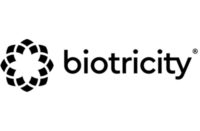Results from largest genomic analysis offer pathway to preventive patient screening
CHAPEL HILL, N.C., Oct. 22, 2020 /PRNewswire/ — In the largest study of its kind, researchers from the University of North Carolina at Chapel Hill (UNC) have discovered a genetic variant that can be used to predict if patients will develop hypertension from the widely used cancer drug Avastin® (generic name bevacizumab). The groundbreaking work is being presented this weekend by the lead researcher, Dr. Federico Innocenti, during a plenary session at the 32nd EORTC-NCI-AACR Symposium on Molecular Targets and Cancer Therapeutics. The presentation can be viewed on Sunday, October 25th at 9:45 ET on the Conference website.
VEGF inhibitors like Avastin® have revolutionized cancer treatment and have been used by millions of patients. Because they target blood vessel growth and regulation, the most common and severe side effects are usually cardiovascular-related. Currently, there is no way to predict who is likely to experience these serious and potentially fatal adverse events, which can develop quickly and often require stopping or modifying treatment.
After analyzing thousands of genomic variations – from over 1,000 Caucasian cancer patients across five independent clinical trials – the researchers identified a genomic variant that appears twice as often in patients with hypertension than without it, and is present in over a quarter of hypertension cases. These results suggest the return on testing for this variant is very high. When assessing how many people need to be tested to avoid one severe event, the number is only 34 for Caucasian patients. If confirmed in patients of African ancestry, the number drops to just 9, given the much higher occurrence of the variant (80%+) in this population.
William R. Sellers, Professor of Medicine at the Dana-Farber Cancer Institute, who is co-chair of the Conference and not involved with the research said, “Side effects from bevacizumab can be debilitating; a simple genetic test to identify which patients will experience toxicities could help provide better and more effective treatments for our patients.” Dr. Federico Innocenti, Associate Professor at UNC who led the research added, “Early identification is a potential double win. It will first help doctors identify patients at a higher risk of hypertension induced by Avastin®. Then, for example, these patients can receive closer monitoring or prophylactic treatment, allowing them to continue their cancer treatment uninterrupted.”
With support from the research group Emerald Lake Safety, efforts are currently underway to start a prospective study that will provide doctors with a free test to screen patients and update their treatment regimens as necessary. “Interested clinicians should contact me,” says Dr. Innocenti.
Press Contact:
Federico Innocenti, MD, PhD
257245@email4pr.com
(949) 257-2074
SOURCE Federico Innocenti, MD, PhD






